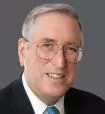On Monday, October 27, 2017, President Trump nominated Scott Mugno, currently the vice-president for safety at FedEx Ground, to be the new head of the Occupational Safety and Health Administration (OSHA).
Mugno is well known in Washington among members of business-oriented organizations with stakes in OSHA issues. For example, Mugno is chairman of the U.S. Chamber of Commerce's OSHA subcommittee (as well as head of the larger Labor Relations Committee), where knowledgeable industry insiders address important OSHA issues. In my work with him on that subcommittee, I have always found him to be an informed participant in these discussions.
Importantly, Mugno is also a lawyer. Many issues of OSHA policy require sophisticated legal knowledge in addition to knowledge of worker safety and health issues. Mugno will be well suited to deal with the agency's legal staff, which has tended under previous leaders to have an outsized influence on OSHA policy. Mugno's first-hand experience with safety at FedEx, and his opportunity to see how it practically intersects with law, will be invaluable to him as head of OSHA. For example, in his work at FedEx, Mugno would have very likely learned first-hand the irrational way that the Lockout Standard's "minor servicing" exemption operates. (See my article on that point here.)
Several things bear watching:
1. Will Mugno rein in the over-aggressive enforcement effort mounted during the Obama years?
Data suggests that OSHA will conduct as many inspections this year as it did last year. So even if Mugno wanted to turn more to compliance assistance, he may find it difficult to do so. OSHA is a large ship that cannot easily be turned in another direction on enforcement philosophy. Moreover, less aggressive enforcement may not sit well with President Trump's blue-collar supporters—which could cause political problems for the administration.
2. Will labor unions have a voice?
During the Obama years, unions got accustomed to red-carpet treatment by the Labor Department. The loss of union influence could result in controversy even before substantive policy changes are announced.
3. What will Mugno do with OSHA's existing standards?
Many of OSHA's standards—such as the Lockout Standard mentioned above—impose duties ill-suited to the contemporary workplace or are poorly written, or both. Will Mugno try to amend such standards?
4. How will Mugno handle the regulation requiring the electronic reporting of injury logs?
The OSHA regulation requiring the electronic reporting of injuries on employers' injury logs, and purporting to prohibit retaliation against workers for reporting injuries, will pose an early test. Both the regulation as a whole and its troublesome anti-discrimination provisions are ripe for re-examination and are the subject of pending lawsuits. Will Mugno settle one or more of the cases challenging the regulation in a way that requires its amelioration? Will OSHA revoke the reporting regulation entirely or just its anti-discrimination provisions?
5. What about enforcement programs, such as the so-called Severe Violator Enforcement Program?
The Severe Violator Enforcement Program has some unusually harsh features that need to be re-examined, if not revoked.
6. Will anything be done about the practice under David Michaels, the former head of OSHA, of "regulation by shaming"?
Under that practice, the agency attempted to intimidate and punish employers by issuing severely adverse press releases, often containing highly inflammatory accusations going beyond the allegations of OSHA's citations. (My colleague Melissa Bailey's two-part blog series can be found here and here.) After President Trump's inauguration, the tone and number of adverse press releases diminished but OSHA has still not ceased this highly unfair practice.
How will all of these issues play out? We'll soon get a better sense as the Senate confirmation proceeds and political battle lines are drawn.
The content of this article is intended to provide a general guide to the subject matter. Specialist advice should be sought about your specific circumstances.

